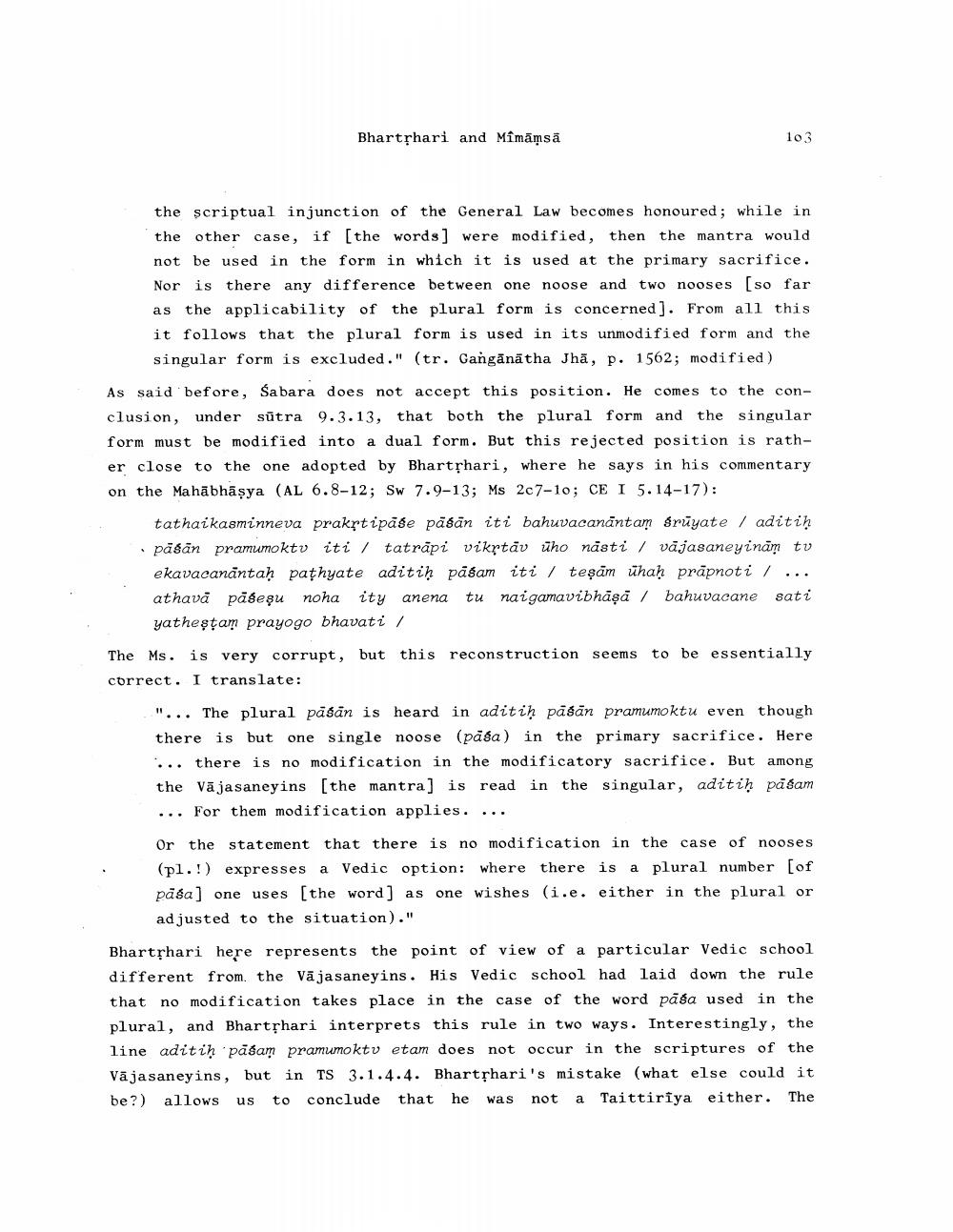________________
Bhartshari and Mímāmsā
103
the scriptual injunction of the General Law becomes honoured; while in the other case, if [the words ] were modified, then the mantra would not be used in the form in which it is used at the primary sacrifice. Nor is there any difference between one noose and two nooses (so far as the applicability of the plural form is concerned). From all this it follows that the plural form is used in its unmodified form and the
singular form is excluded." (tr. Cangānātha Jhā, p. 1562; modified) As said before, Śabara does not accept this position. He comes to the conclusion, under sūtra 9.3.13, that both the plural form and the singular form must be modified into a dual form. But this rejected position is rather close to the one adopted by Bhartshari, where he says in his commentary on the Mahābhāşya (AL 6.8-12; Sw 7.9-13; Ms 2c7-10; CE I 5.14-17):
tathaikasminneva prakrtipase pāśān iti bahuvacanāntam srüyate / aditih • pasan pramumoktv iti / tatrāpi vikrtāv uho násti / vājasaneyinām tu
ekavacanāntah pathyate aditih pāśam iti / teşām ühaḥ prāpnoti / ... athavā păseşu noha ity anena tu naigamavibhāşa / bahuvacane sati
yathestam prayogo bhavati / The Ms. is very corrupt, but this reconstruction seems to be essentially correct. I translate:
"... The plural päsän is heard in aditih pasan pramumoktu even though there is but one single noose (pasa) in the primary sacrifice. Here ... there is no modification in the modificatory sacrifice. But among the Vā jasaneyins [the mantra) is read in the singular, aditiņ pasam ... For them modification applies. ...
Or the statement that there is no modification in the case of nooses (pl.!) expresses a Vedic option: where there is a plural number [of paša] one uses [the word) as one wishes (i.e. either in the plural or adjusted to the situation)."
Bhartșhari here represents the point of view of a particular Vedic school different from the vājasaneyins. His Vedic school had laid down the rule that no modification takes place in the case of the word pasa used in the plural, and Bhartshari interprets this rule in two ways. Interestingly, the line aditiņ pašam pramumoktv etam does not occur in the scriptures of the Vājasaneyins, but in TS 3.1.4.4. Bhartshari's mistake (what else could it be?) allows us to conclude that he was not a Taittiriya either. The




